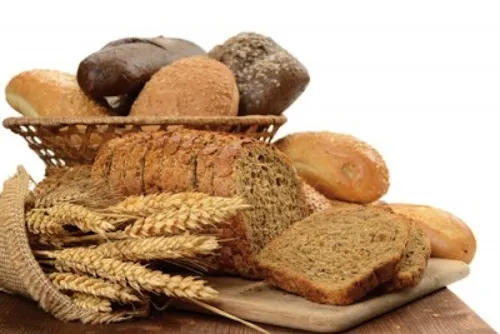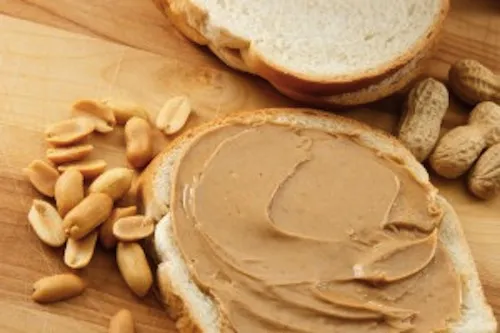Overeating is one of the most common health mistakes people make. You can spend countless hours at the gym and stock your house with heart-healthy foods but if you don’t know when to stop eating, you’ll never reach your weight loss goals.
If you love food, preventing yourself from overeating can seem like an impossible task. The good news is, it’s not. It’s actually very simple. Follow these 10 simple rules and you’ll see just how easy it is to control your appetite:
1. Eat Slower
Eating slower is one of the most effective and easiest ways to avoid overeating. Not only will you take the time to actually enjoy what you’re eating but you’ll also give your body the time it needs to send the message to your brain when you’re full. Eating too fast means that by the time your brain receives the message that you’re full, you’ve already consumed far too much. It actually takes around 20 minutes for your brain to get this message, so make it a habit to slow down and savor your meals.
There’s another benefit to eating slower. When you wait for the signal to tell you you’re full, you obviously eat less because your body recognizes it’s had enough. And eating less could help you lose weight or at least control it. It’s not about starving yourself – slowing down will still result in eating enough food, but you’ll also lower your calorie intake at the same time.
2. Plan Ahead
Planning ahead will go a long way in curbing your appetite and getting in the habit of eating well. On Sunday night, cut up fruits and vegetables and put them in plastic containers in the fridge. When you start to feel hungry, grab one of the containers and eat a healthy snack instead reaching for that bag of chips. You can also use these healthy snacks for during the work day. Pack some in your lunch to avoid hitting up the vending machine for a sugary, salty, and all-around unhealthy snack.
When you plan ahead, you’ll likely feel like a bit of stress or pressure is lifted from your shoulders. In today’s world, your professional and personal life can lead to an extremely busy schedule and a ton of stress. Finding a good balance is difficult, so changing your lifestyle in simple ways like meal plans can make a big difference.
3. Drink lots of Water
Drinking lots of water, especially before a meal, will help you feel full faster. Often, people think they’re hungry when they’re actually thirsty. Drinking a huge glass of water (or even a cup of herbal tea) when you start to feel that mid-afternoon or mid-evening craving will suppress your appetite and keep you feeling satisfied. You’ll be less likely to overeat if you drink water regularly. Although the amount of water you need can vary, reminding yourself to drink it throughout the day should curb some of your food cravings.
Drinking water is also good for your overall health. According to the Mayo Clinic, water is needed to flush toxins out of your body, carry nutrients to your cells, and prevent dehydration. When you aren’t properly hydrated, you can feel tired and sluggish. Some people turn to food when they feel this way, so it’s another way that drinking water could prevent overeating.
4. Eat Frequently
Doctors and health experts all agree: eating frequently is the single most effective way to prevent overeating. Eating small, healthy meals (or snacks) throughout the day will ensure your body never gets to the point of being really hungry. When you let yourself get hungry, you’re way more likely to binge eat. You may even eat much faster when you’re hungry, which won’t give your body time to cue your brain into the fact that you’re full.
As soon as you start to feel hungry, eat a small snack (or drink that large glass of water we referred to earlier) which will satisfy your hunger until your next meal. Try to stick to this habit at work, too. A lot of people work through their lunch and don’t eat nearly enough during the day, which is terrible for your health. And they often turn to fast food or unhealthy snacks when they don’t put together food for the day. Make the time at work to eat frequently.
5. Eat Lots of Fiber
Foods high in fiber will make you feel full faster. They’ll also keep you feeling full longer. For these reasons, fiber-packed snacks are the perfect solution for overeating. Instead of snacking on unhealthy treats, have a bowl of granola, a handful of whole wheat crackers or a variety of fresh vegetables on hand. Eating fiber in the morning could help you through those first few hours of work. A breakfast that doesn’t satisfy your hunger can be distracting, but one with fiber can prevent you from snacking throughout the morning.
A diet rich in fiber can also help you lose weight, partly because you’ll be full faster and for longer, but also because it can help eliminate fat. Not to mention it’s good for your digestive system and heart. For more information and suggestions, check out this article on 15 Ways to Add Fiber to Your Diet.
6. Don’t Go Grocery Shopping When You’re Hungry
This is a classic mistake made by so many of us each week. You make your way to the grocery store and before you know it, you’re starving. Or maybe you skipped a meal to save time but need to drop by the grocery store to pick up a few items on your way home. At that point, everything in the store looks delicious and by the end of your trip you have several bags of chips, baked goods and a microwavable meal you can whip up as soon as you get home. You often crave these unhealthy foods but you usually don’t buy them. You know you shouldn’t, but you’re so hungry that you make excuses for buying them.
The solution is easy. Don’t go grocery shopping when you’re hungry. Snacking on something small before your weekly grocery trip – or even if you just need to run in and out of the store – will work wonders on preventing overeating.
7. Make Smaller Meals
This may seem like common sense but so many families still make huge meals every night. The more you make, the more you’ll eat. It’s that simple. You might think you’re going to take the leftovers to work the next day but chances are you’ll go back for seconds at the dinner table or call on those delicious leftovers as a mid-evening snack. If you accidentally end up with more than you thought you would, put the leftovers in a freezer bag or container, and pull it out on a day when you’re too busy to cook or if something comes up.
People who live alone can struggle with cooking for one. The amount of work it takes to feed just one person makes it easy to rationalize making enough for leftovers. But living alone often leads to overeating, so stick to smaller meals whenever you can. Check out this article on 10 Tips for Keeping Portion Sizes Sensible.
8. Don’t Buy Junk Food
If you have junk food in your house, you’ll eat it. However, if you feel a junk food craving coming on but don’t have any salty or sugary snacks in the house, chances are you’re not going to make a special run to the grocery store. Instead, you’ll turn to the conveniently packaged and pre-cut vegetables you made earlier in the week and you’ll feel better about it afterwards. Of course, there are times you’ll head out to get a snack, but you’ll greatly lower your changes by not keeping junk food in your house.
Eating junk food isn’t ideal for more than the obvious reason that it’s unhealthy. Another problem with a lot of junk food is the portion size. As the years pass, North American portions continue to get bigger and bigger, which often leads to overeating. If you get cravings for unhealthy snacks, there are a lot of healthy options out there that can satisfy your cravings.
9. Eat Lots of Protein
Similar to fiber, getting enough protein in your diet will make you feel full for longer and satisfied faster than many other foods. Make sure your breakfasts, lunches, dinners and snacks all have a decent amount of protein in them. Protein can be found in all types of food, including meat, vegetables, grains, cheese, beans, nuts, tofu and yogurt, making it easy to add protein-rich foods to every meal. It’s especially important to add protein to your breakfast. Starting your day with food that will give you energy and keep you full for longer can prevent overeating.
Protein-rich diets can help with weight loss, another reason to make sure you include it in your diet. Some research has even shown that protein can reduce not only your snack cravings, but specifically your cravings for high-fat foods. To learn about foods that contain high amounts of protein, check out our article on the 11 Best Protein Power Foods for Weight Loss.
10. Never Skip Breakfast
There are several health benefits to eating breakfast but preventing your body from overeating later in the morning is one of the top ones. If you skip breakfast, your body will get incredibly hungry by around 11 o’clock, at which time you’ll be so beyond hungry that you’ll end up binging on an unhealthy pre-lunch snack. Eating a protein and fiber-packed breakfast will give you the energy you need to start the day and the nutrients you need to stay full longer.
A busy work and home life leads people to sacrifice things that take time, and as a result, breakfast is often the sacrificed. But doing so will only lead to more problems, including lack of energy and unhealthy eating patterns. Don’t have time to make breakfast in the morning? No problem! Check out our article on 15 Breakfasts you can Make Ahead for the Week.
Like this article? Check out these other posts for Healthy Living:













